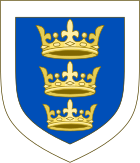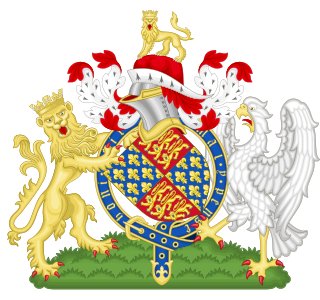| Act of Parliament | |
 | |
| Long title | An Act of Slaunder. |
|---|---|
| Citation | 28 Hen. 8. c. 7 (I) (or 28 & 29 Hen. 8. c. 8 (I)) |
| Territorial extent | Lordship of Ireland (originally) Northern Ireland (today) |
| Dates | |
| Commencement | 1537 |
| Repealed | 1962 (Republic of Ireland) |
| Other legislation | |
| Amended by | Statute Law Revision (Ireland) Act 1879 |
| Repealed by | Statute Law Revision (Pre-Union Irish Statutes) Act 1962 (Republic of Ireland) |
| Status | |
| Republic of Ireland | Repealed |
| Northern Ireland | Amended |
The Treason Act (Ireland) 1537 (28 Hen. 8. c. 7 (I), long title An Act of Slaunder ) is an act of the former Parliament of Ireland which adds several offences to the law of treason in Ireland. It was repealed in the Republic of Ireland in 1962 (but was obsolete well before then), but is still binding in Northern Ireland today.
Contents
The Act makes the following conduct treason:
- to "maliciously wish, will, or desire, by words, or writing, or by craft, imagin (sic), invent, practise, or attempt, any bodily harm to be done or committed to the King's most royal person, the Queen", or their heirs apparent;
- or by such means to deprive them of the dignity, title or name of their royal estates;
- to slanderously publish "by express writing, or words" that the Sovereign is a heretic, tyrant, schismatic, infidel or usurper of the Crown; or
- to rebelliously "detain, keep or withhold" from the Sovereign his fortresses, ships, artillery, "or other munitions or fortifications of war", for longer than six days after being commanded to surrender them to the Sovereign.
The penalty for treason was death until 1998 when it was reduced to imprisonment for life or a lesser term. During the debate on the abolition of the death penalty, the 7th Earl of Onslow said:
My Lords, this is the most glorious piece of information one could possibly come across. It has been worth waiting 30 years in your Lordships' House to know that slandering the sovereign in Ireland is still a hanging offence. [1]













